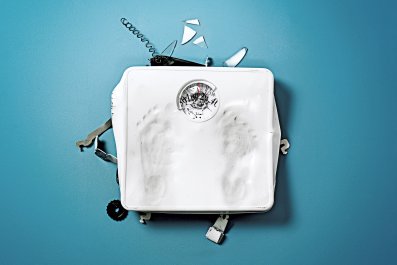Early in my teenage years, when movies and books were pretty much my life, it began to occur to me that what was missing from these experiences was depictions of me as a person. When Sidney Poitier came along, I began to feel better about movies. However, there was nothing historical that challenged the status quo.
When I was called to talk about acting in the 1989 movie Glory, I almost blew my top. It showed the country in a state of Civil War, fighting against itself and ultimately needing every able-bodied man, hence forming companies like the 54th Massachusetts Infantry Regiment, one of the Union Army's first Black regiments of the conflict.
I was so excited about the idea of doing this kind of story, and after we had done it—filmed it and shown it—I had people tell me that they wept, literally wept, because they never knew anything like this had occurred in American history.

I was proud to be involved in that; it was like a spur, a juice. There's more. There's so much more history people do not know about. So let's keep going. I thought: if you get any way to do it, do it. Go ahead. That can be your aim in life, to expose as much of American history that involves me as possible.
Often with projects you're passionate about, you fight for it for however long you fight for it and if it doesn't get legs, you shelve it. But sooner or later its time will come. Some spark, some incident, something will happen that brings that project to life.
And that's what happened with the 761st Tank Battalion project, a documentary telling the story of the first Black tank unit to serve in combat during World War Two.
We had the idea some years ago and introduced it to one of our most successful producer-directors, Steven Spielberg. He saw the need for this story to be told, but his situation changed before we got anything going.
The project was shelved, but we never forgot it. And I don't know how it came to life, but it had a lot to do with director Phil Bertelsen, and producers James Younger and Lori McCreary, who saw that this story could be told as a documentary instead of a movie.
It outlines the entirety of the 761st; their training, how long they trained, why they trained so much, why they were called up, and what happened to them after they got to France.
A sort of bastard battalion, always attached to some infantry unit, when they arrived in France they were sent into battle and they succeeded. They kept succeeding, and because of these successes were kept at the front for 183 straight days.
Despite their various achievements, it took three decades for this unit to receive the special commendation awarded to them. Personally, I want to stand on a platform and start yelling and screaming about neglecting black history. Black history is American history. What my job is now is correcting a few things that were left out.
As a child, my own uncles, Jessie and Willie, were called up to serve in the Second World War.
While I didn't have any real concept of what was happening, I knew there was a war going on. I was living in Mississippi and later Chicago. We had blackout areas, where you pulled all your shades down and dimmed the coal oil lamps.
When I was about six and a half I remember hearing that one of my uncles had been declared missing in action in the Pacific. They couldn't say he'd been killed because they couldn't find a body.
For many years I had searched for records relating to both of my uncles, to no avail. But in his extraordinary research, Phil discovered that Willie not only had not been stationed in the Pacific—he was in France—but also was not killed in combat. He was murdered. That's the next big mystery that our production team is trying to solve.
For me, those records were an eye-opener, a realization of what really happened. I was 6 years old when they disappeared, and the last time I saw them both was when my grandmother, on my father's side, died and they came to the funeral.
They were both in uniform. From then on it was all just hearsay.
I don't know how to express how I feel about the discoveries I have made, but it's gratifying to get the truth and know who, what, where, and why.
Had battalions such as the 761st received the recognition they deserved at the time, I do believe the social landscape of the United States would have been affected.
Many people think Black people have never done anything of any note, of any seriousness. But that is simply gaps in history.
This is us. This is all of us. This is who we are. This is American history.
Morgan Freeman is an Oscar-winning actor. 761st Tank Battalion: The Original Black Panthers premieres on Sunday, August 20 on The HISTORY Channel at 8/7c and Sky HISTORY on October 1.
All views expressed in this article are the author's own.
As told to Newsweek's My Turn associate editor, Monica Greep.
Do you have a unique experience or personal story to share? Email the My Turn team at myturn@newsweek.com.









